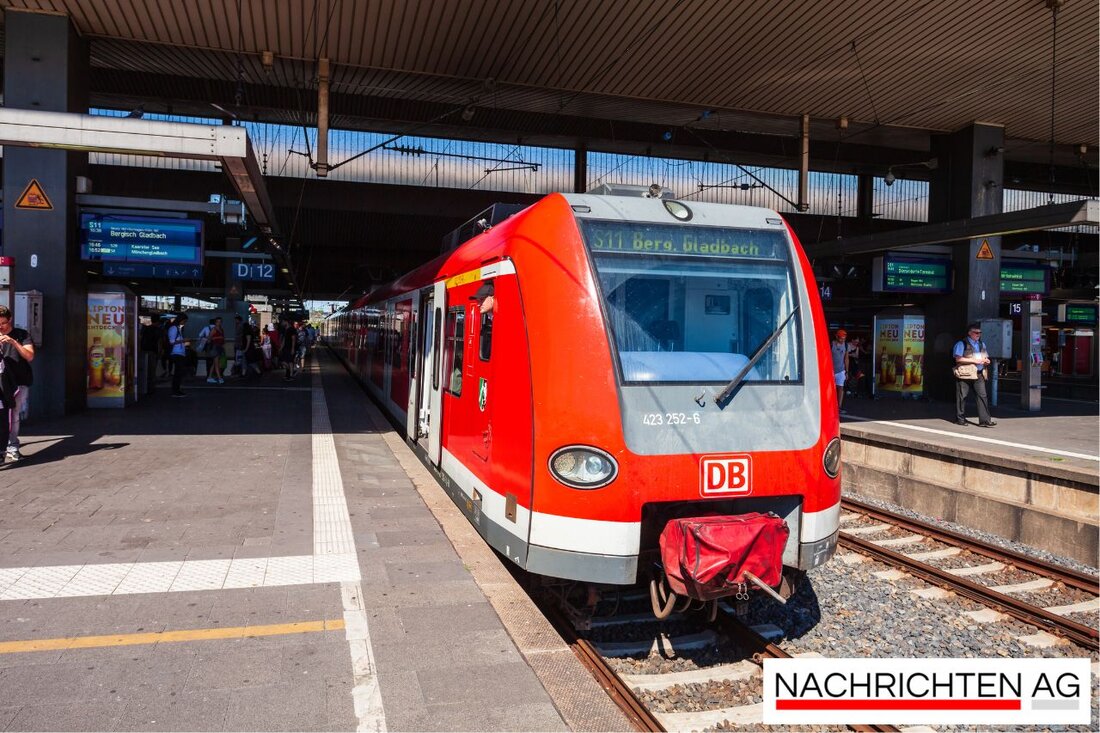Railway closure between Berlin and Hamburg: CDU demands quick solutions!
Mecklenburg-Western Pomerania is discussing the postponed general renovation of the Hamburg-Berlin railway line and the effects on commuters.

Railway closure between Berlin and Hamburg: CDU demands quick solutions!
A storm is currently brewing in Mecklenburg-Western Pomerania, and not just in the sky. The CDU is in a state of alarm because of the current reports about the Hamburg-Berlin rail project. Loud svz.de Deutsche Bahn does not plan to install the European train control system ETCS (European Train Control System) during the upcoming nine-month closure. This decision brings anger and disappointment in the Schwerin state parliament.
Daniel Peters, the state and parliamentary group leader of the CDU, urgently pointed out that citizens urgently need solutions and not permanent construction sites. Deutsche Bahn, on the other hand, is talking about an indefinite postponement of the digital expansion with ETCS and is also planning another full closure in the 2030s. Peters has criticized several times that Deutsche Bahn is slowing down commuters for months without making the system fit for the future.
The upcoming general renovation
As already announced, the general renovation of the 280 kilometer long route between Hamburg and Berlin will begin in August 2025 and is considered the longest complete closure of an important route in Germany. The total cost of this renovation work is estimated at 2.2 billion euros, according to ndr.de criticized by the Federal Audit Office as expensive and wasteful. Preparations are already in full swing with deforestation, drainage and the construction of construction roads and noise barriers.
It is good that Deutsche Bahn has set up a replacement rail service for the duration of the renovation. This includes, among other things, express buses that are equipped with toilets and WiFi. However, commuters in western Mecklenburg must expect drastic impacts on their travel times. A new regional express will connect Schwerin with Berlin via Güstrow and Neustrelitz - the journey time is two and a half hours, with departures every two hours.
The dispute over the ETCS system
A central point of contention is the decision against installing the ETCS system during the renovation. According to Deutsche Bahn, the installation of this technology was too time-consuming and complex, so it could only be implemented in the early 1930s. They argue that immediate installation would increase costs. The ETCS represents an important modernization of the rail system in Germany, which was developed as part of the European Rail Traffic Management System to harmonize European rail traffic. This was on digital-schiene-deutschland.de explained in more detail.
The implementation of the ETCS could make a significant contribution to improving interoperability between different rail systems and making the rail system as a whole sustainable. But Peters emphasizes that without comprehensive renovation and integration plans, long-distance transport in the region will be devalued. Clear financing is required; otherwise the closure would be better postponed.
The people of West Mecklenburg are skeptical about the upcoming changes and expect the railway to finally offer solutions instead of constantly opening new construction sites. The call for transparency and future-proof technical solutions is becoming louder and louder.

 Suche
Suche
 Mein Konto
Mein Konto